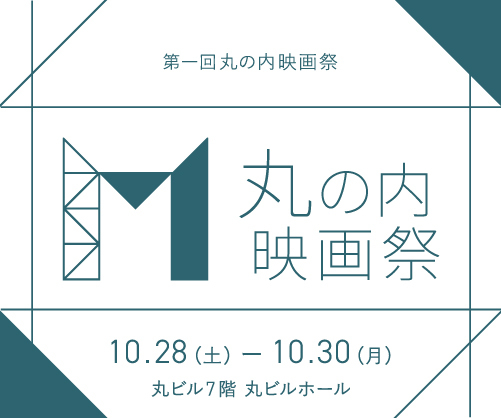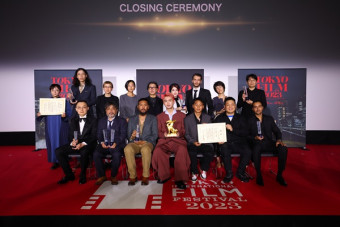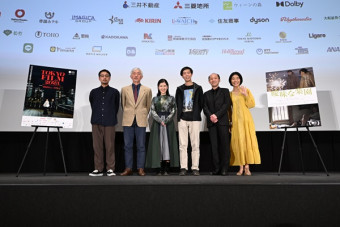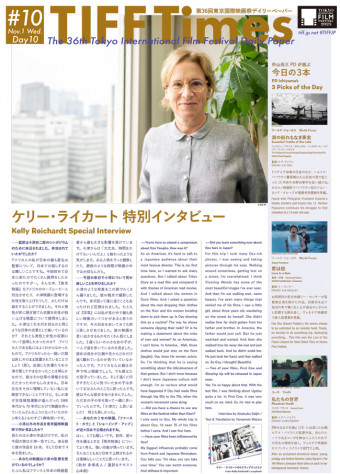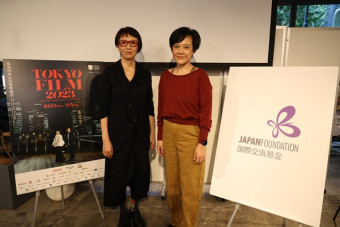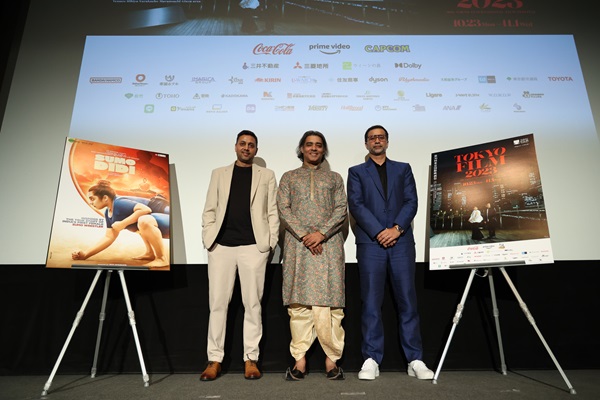
India’s Sumo Didi world premiered in the 36th Tokyo International Film Festival’s Asian Future section on October 27, and at the post-screening Q&A, director Jayant Rohatgi enthused, “Considering our film is based on [the story of] India’s first female sumo wrestler, there could not have been a better start.”
While sumo wrestlers have traditionally been all male, there has been a small but growing trend to include women in the sport. But few of us knew about India’s first female sumotori (wrestler). Sumo Didi is inspired by the true story of Hetal Dave, a judo athlete who becomes fascinated by sumo and is unwilling to give up her dream to wrestle. Not only is Sumo Didi a satisfactory genre movie that follows the conventions of sports films, but it also provides a valid social commentary on prejudices prevalent in Indian society, especially the condescending views towards overweight and unmarried women.
Screenwriter Nikhil Sachan and producer and original story Arunava Joy Sengupta had joined the director at the Q&A session, and Sachan told the audience, “Hetal’s story has reached the stage she always deserved. Her journey started with a small newspaper article about the girl, after she’d had to stop playing sumo because she couldn’t manage finances and everything. And today, her film and life have been showcased in the birthplace of sumo, so we feel really accomplished and overwhelmed.”
The feel-good movie is driven by the dynamite performance of Shriyam Bhagnani as Hetal. According to the producer, it took some time to find an Indian actress who could play a sumo wrestler. “We did audition a lot of girls in India,” said Sengupta. “We selected two girls. And we trained both of them. We finally took a call on her [Bhagnani] after seeing her training and commitment. She was put through training for nearly 9 months.”
The real Hetal also participated in the process of training and taught Bhagnani the right posture, fitness, and diet for a sumo wrestler. “She was good at acting, but we also wanted her to look and feel like a sumo wrestler,” said Sengupta.
Sumo Didi (“didi” means “big sister,” so the title translates roughly to Sumo Sis) is entertaining but also socially significant, as it references the challenges faced by Indian female athletes. On the situation they generally face, Sengupta noted, “In India, cricket is like God. Everybody plays cricket, watches cricket and follows cricket. So if you are a cricketer, be it female or male, that’s a different ballgame altogether. However, something like sumo, it’s not even known in India. We don’t even have a federation. So, whatever Hetal has achieved, it’s all thanks to herself.”
Despite these difficulties, there is a rapid increase in the amount of support from the government and corporations that promote sports in India. Sengupta continued, “I think all kinds of sports are blooming now. And I hope in coming years, films like this have lots to inspire both males and females to get into sports and take up different kinds of sports.”
One of the memorable scenes from Sumo Didi is when Hetal travels to Japan to be trained by a legendary, retired Yokozuna (grand champion). On the relationship between mentor and apprentice, the director said, “That was one very strong point we wanted to emphasize and make sure that we were able to capture the essence of Japanese culture.” As one excited audience member compared the training sequence to other Japan-inspired films like Star Wars and The Matrix, it seems their efforts have been successful.
Q&A Session: Asian Future
Sumo Didi
Guests: Jayant Rohatgi (Director), Akash Chawla (Story and Producer), Amit Chandrra (Prdoducer), Arunava Sengupta (Story and Producer), Nikhil Sachan (Screenplay and Dialogue)















